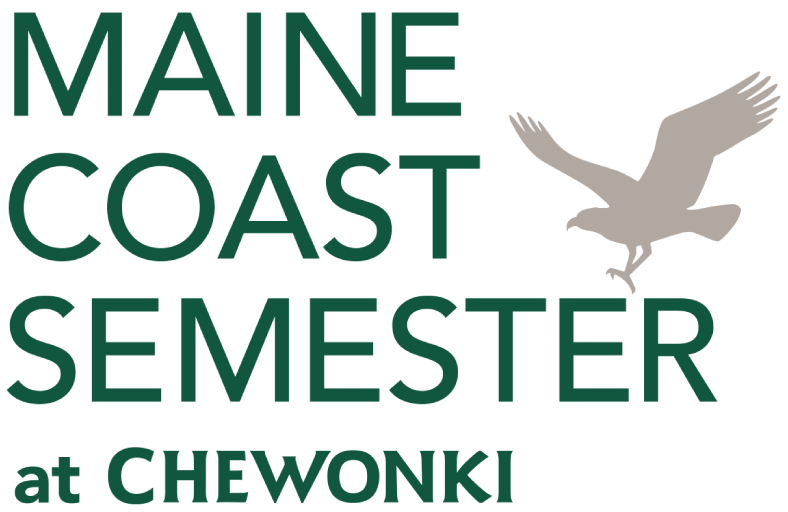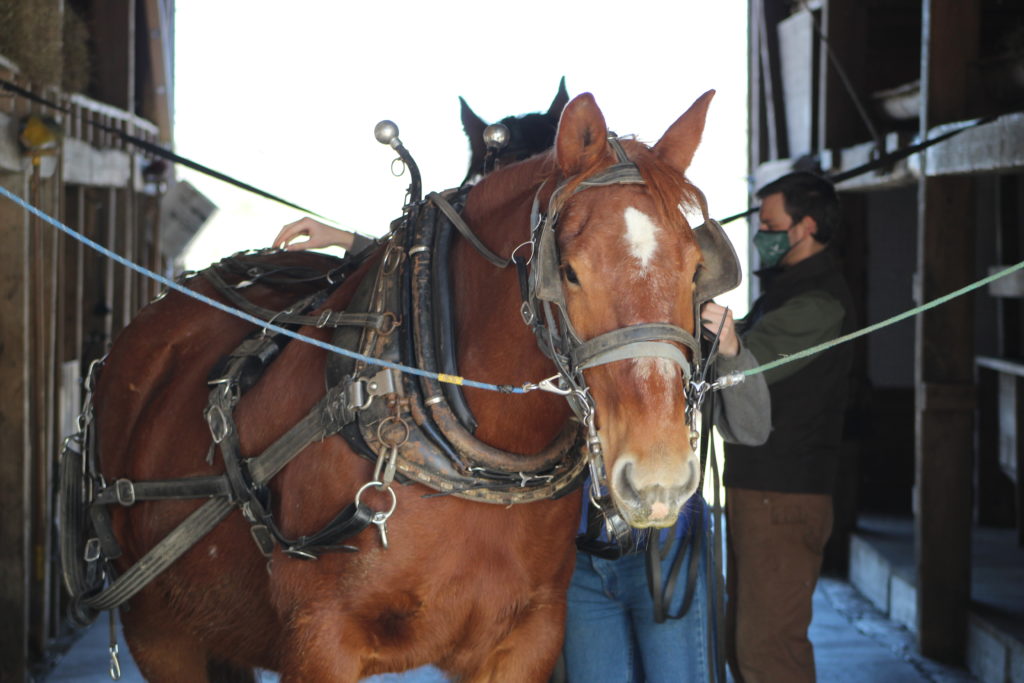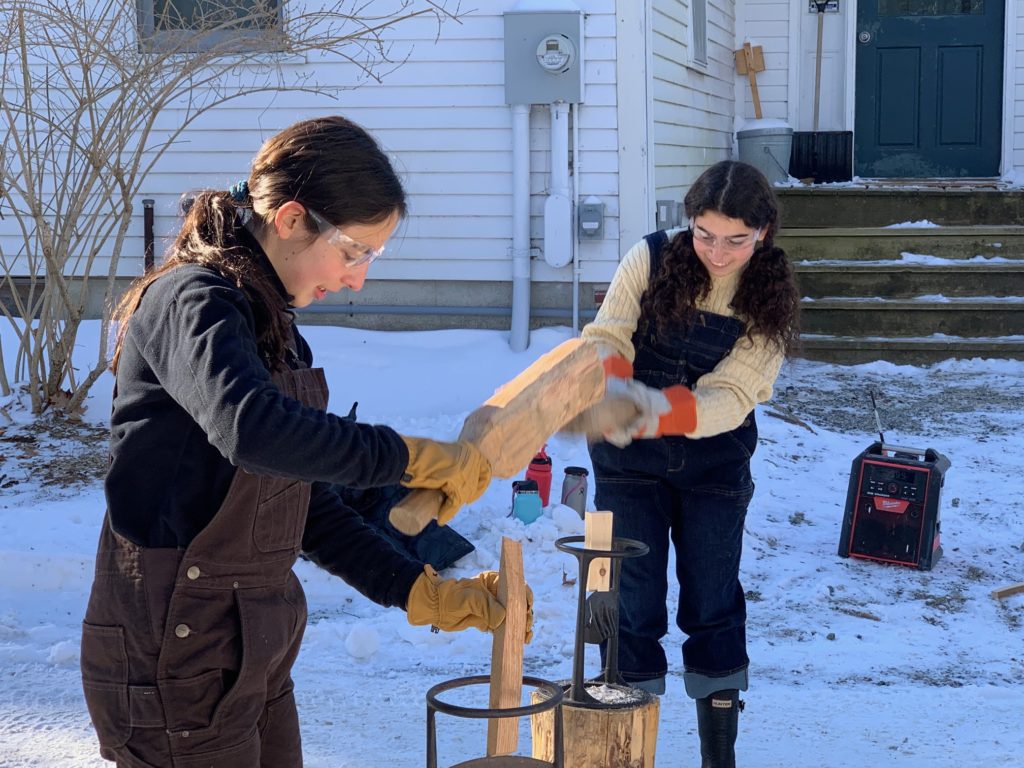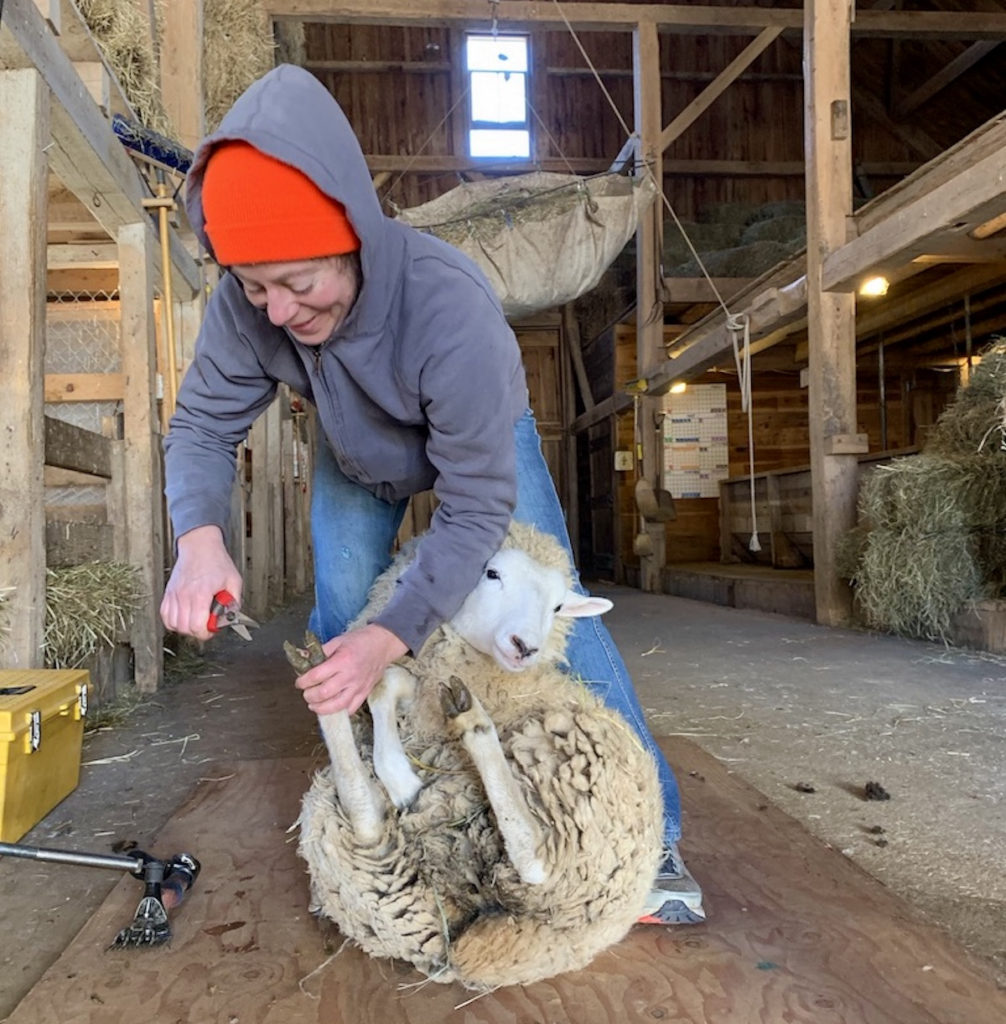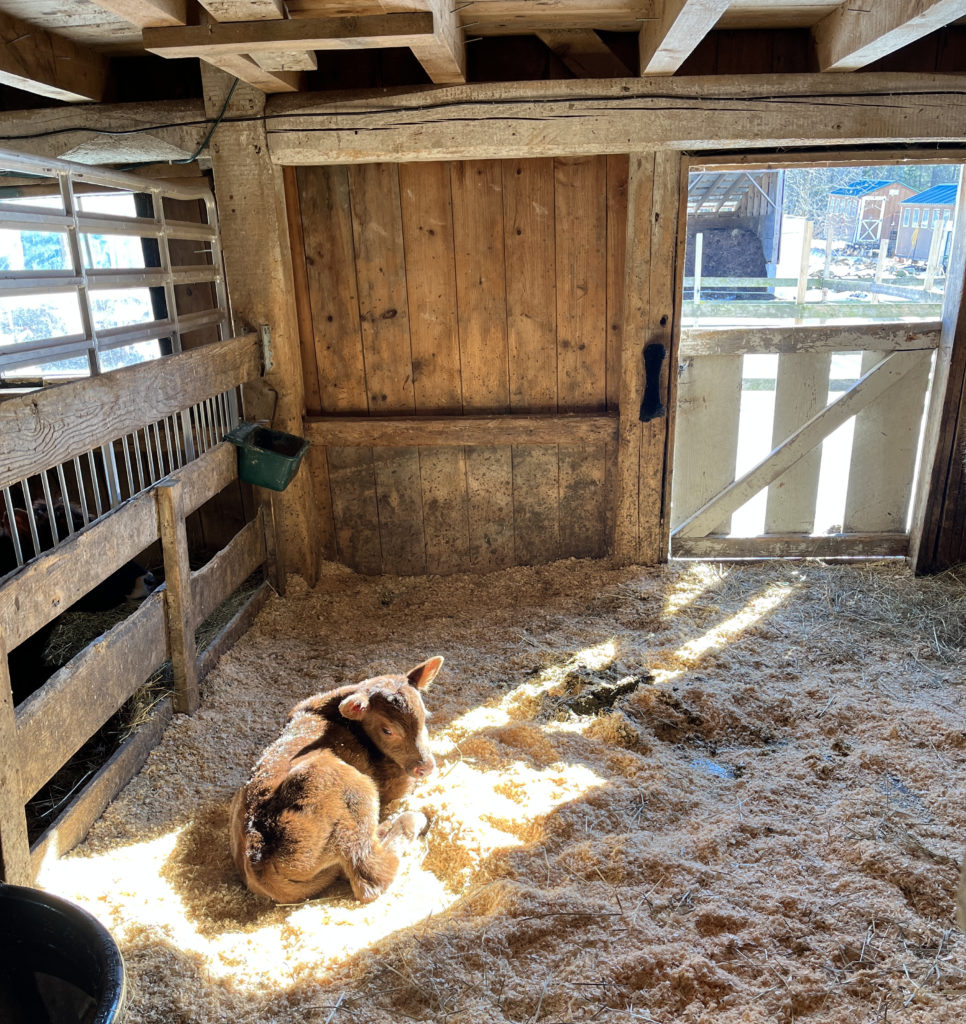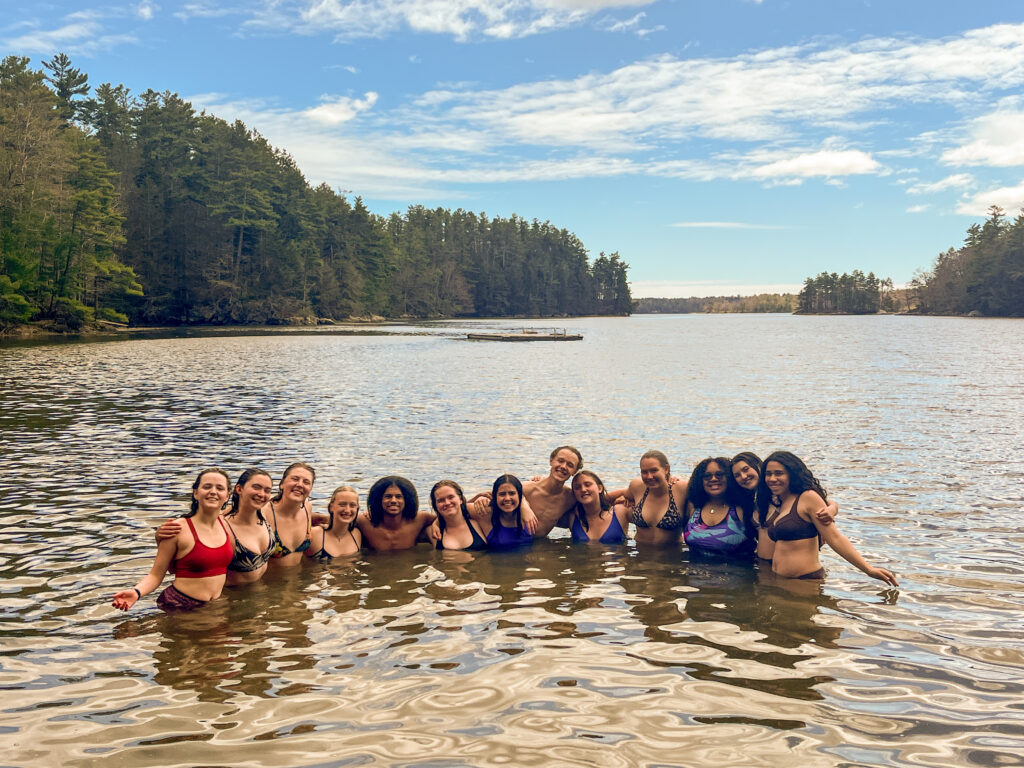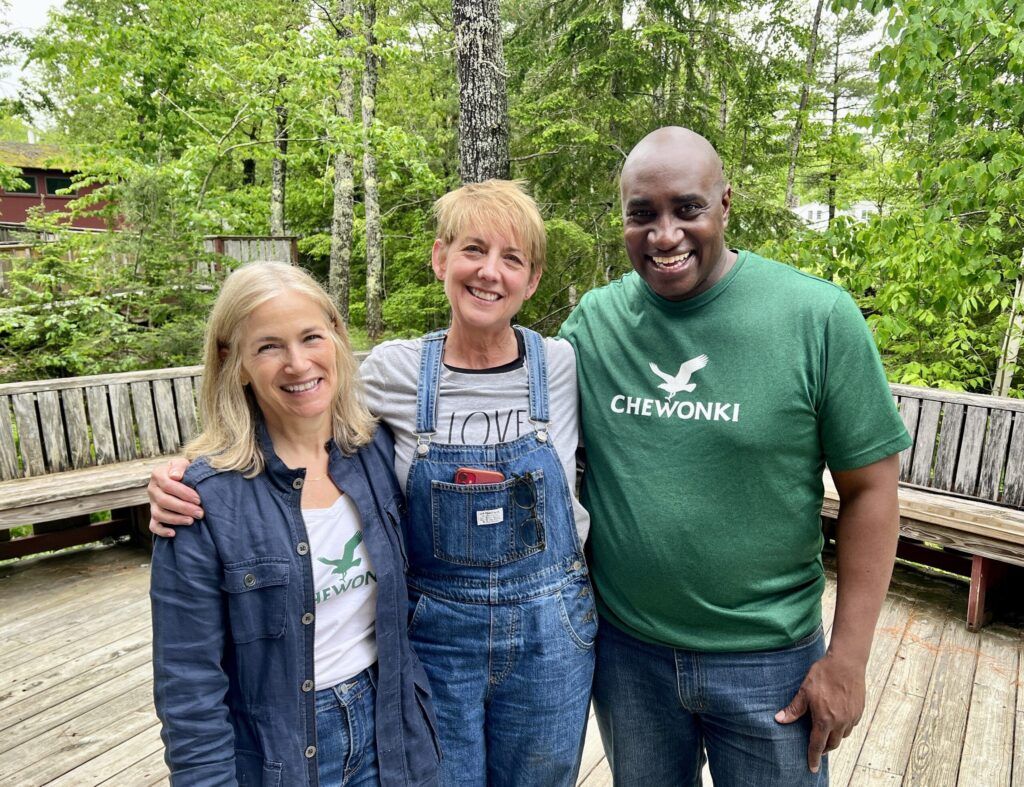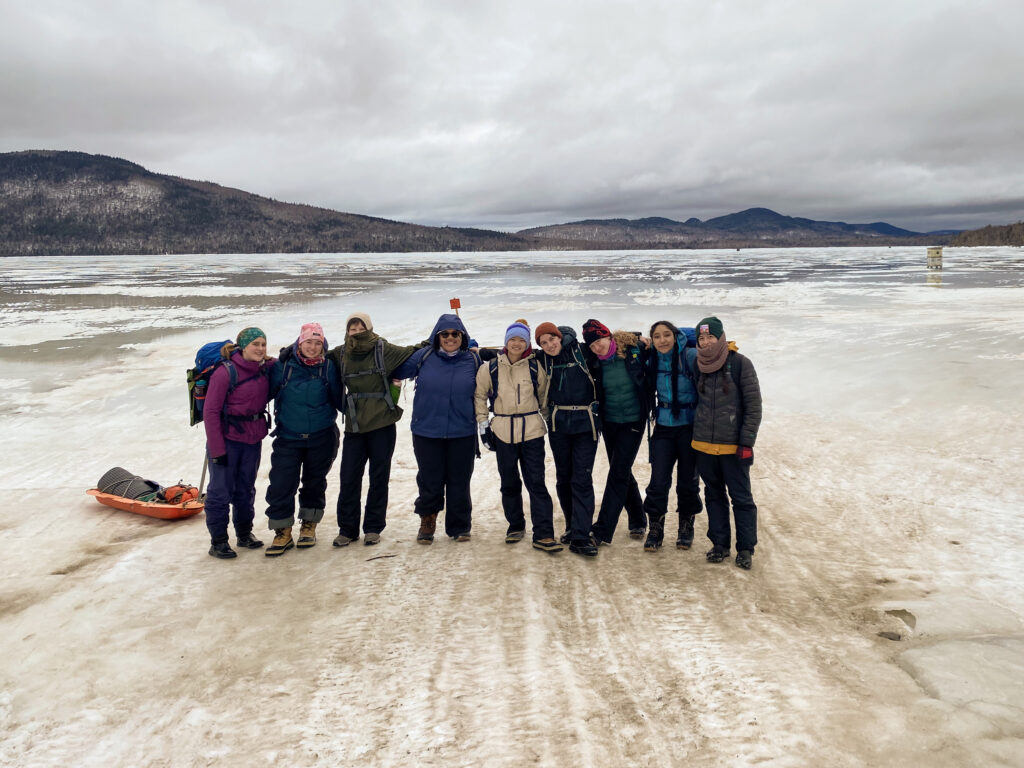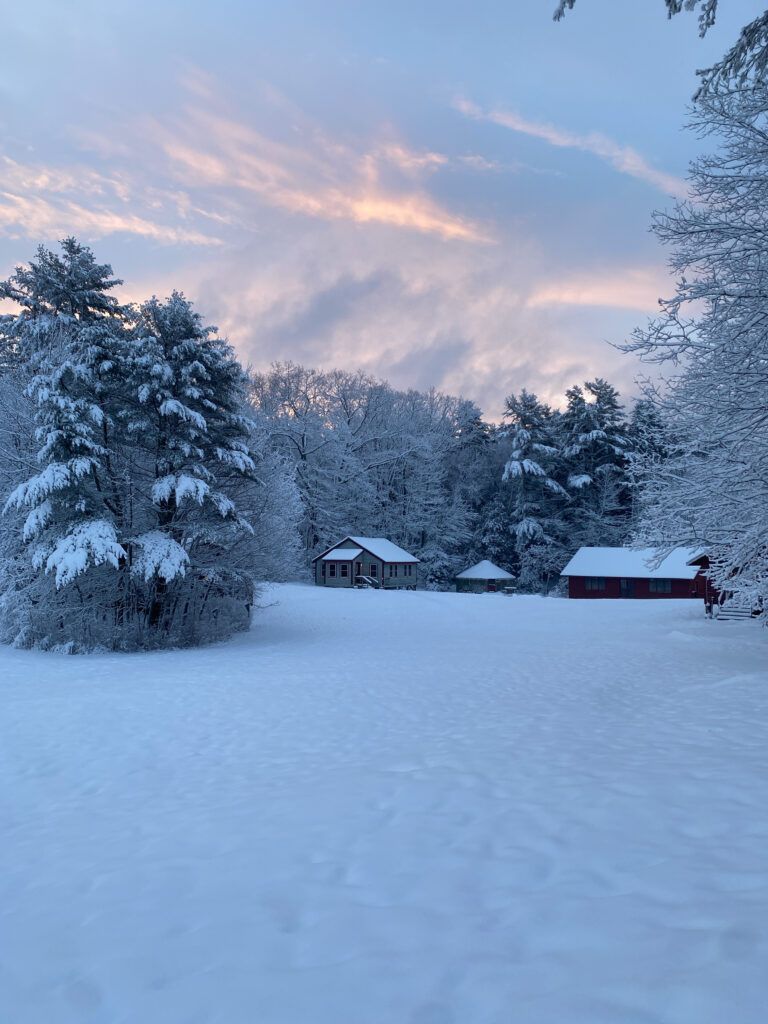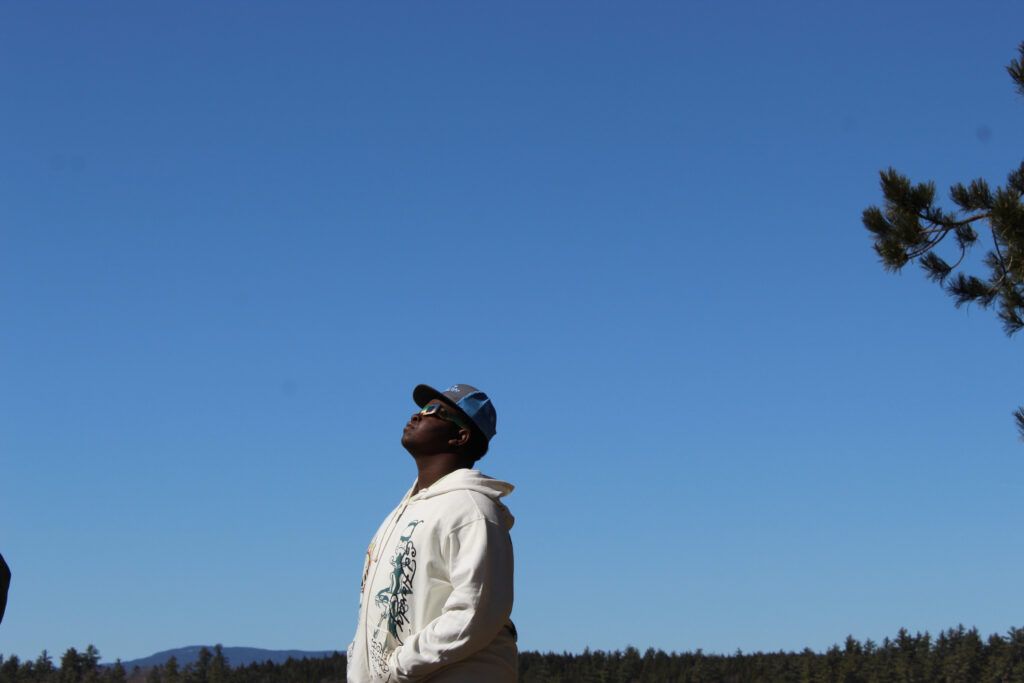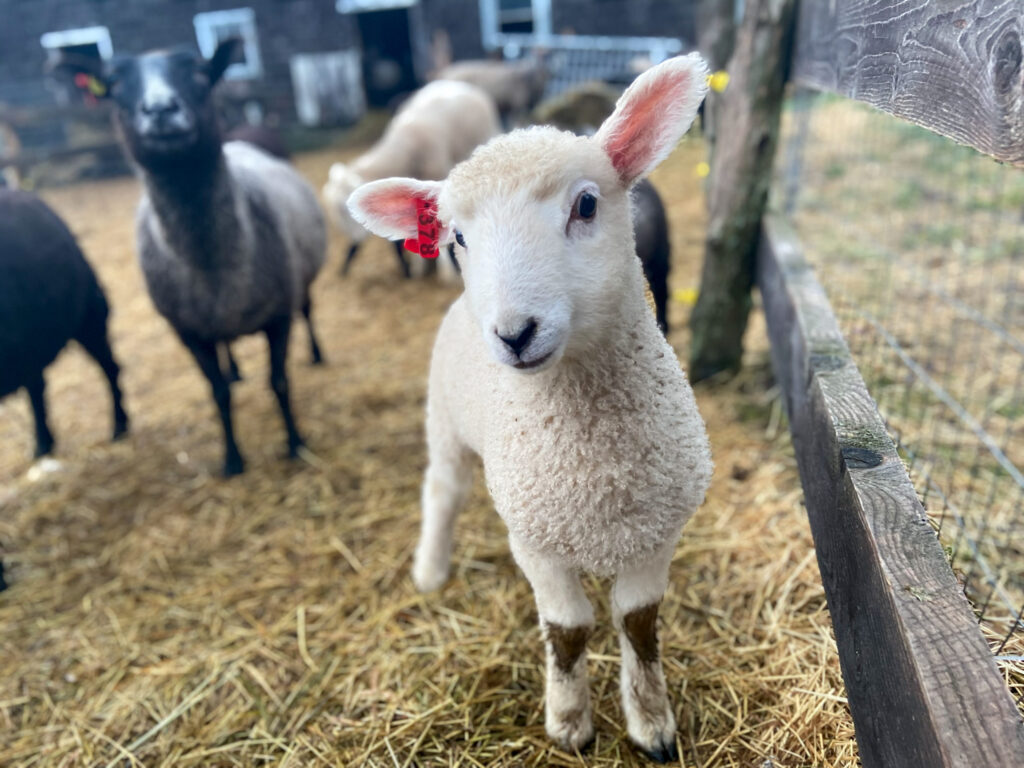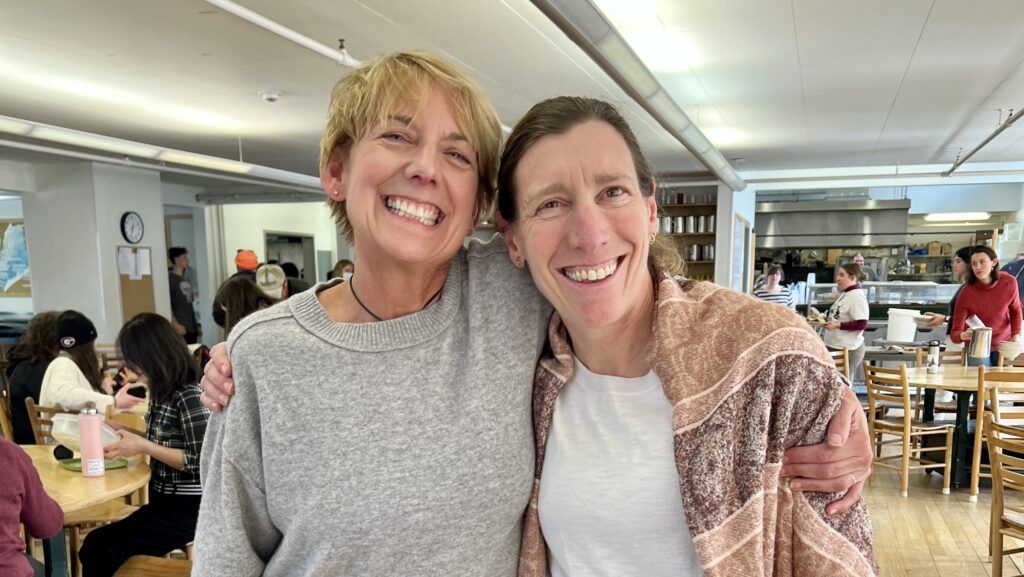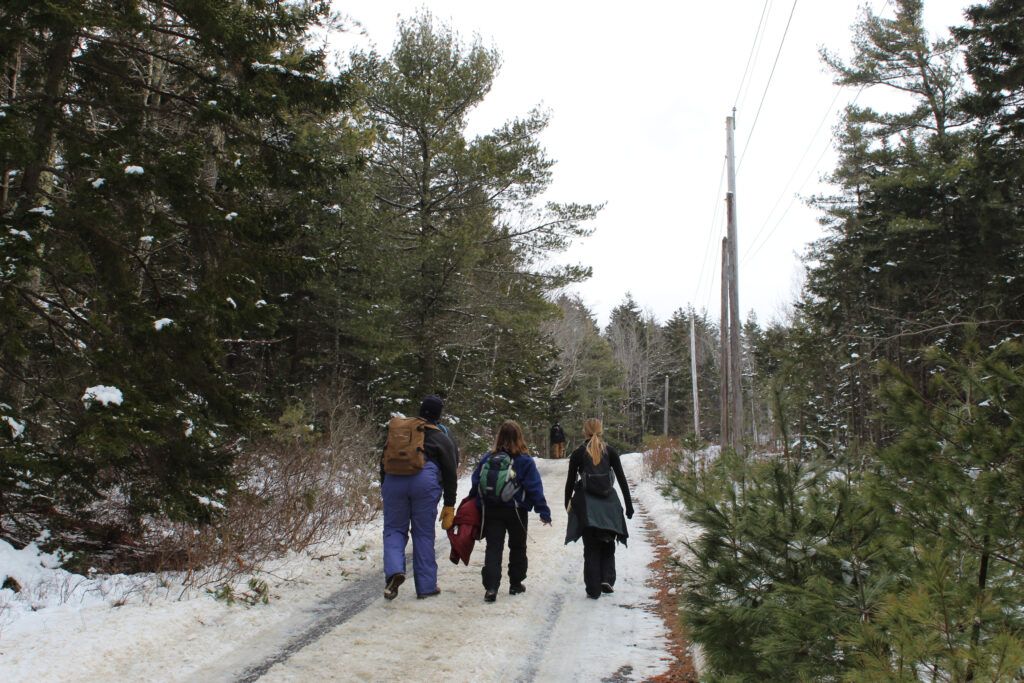Driving up Chewonki Neck Road on a Thursday evening, on the way back from a field lab, I am first greeted by the image of horses grazing on a pasture, backlit by the golden sun. The farm has come to be one of my favorite places on the Chewonki campus. The longer that I am here at Chewonki, the greater the role of the farm becomes for me.
Once a week, we have a seminar called Farm and Food Systems during which we learn about the industrial and local food industry, but also Chewonki’s food systems. For our last Farm and Food Systems seminar, we met on the farm, and went on a scavenger hunt during which we made observations about the farm. We then came together as a class and discussed what the logic behind many of the things that we noticed was, with a focus on the importance of soil and soil maintenance. This exercise revealed to me how special it is that we as students are able to be truly immersed in what we are studying here on the farm. Rather than simply being taught, we are able to make discoveries for ourselves.
In many ways the farm serves as a connection between different aspects of the Chewonki program. For example, much of what we learn during Farm and Food Systems is applicable to the work that we do on the farm. On the same day as the Farm and Food Systems class on the farm, I was assigned to the farm for my work program. During this time I learned how to prune apple trees to prepare them for growth. Before this experience, I never would have thought that removing around one third of an apple tree was crucial for its growth. I learned that this process of pruning is important in order to allow ample sunlight to reach as much of the tree as possible. I also learned that the location of the cuts themselves must be carefully considered in order to divert energy where it is most needed so that the tree can have the highest possible yield. I find that learning these more specific skills which are crucial for the maintenance of a working farm complement the broader curriculum of the Farm and Food Systems class really well as I am able to contextualize what it really means to be an organic farm and all of the hands-on work and knowledge that this requires.
The final (and possibly most fun) role that the farm has played in my experience so far at Chewonki has been as a place to experience the beauty of the outdoors and to interact with animals. On Wednesday it was a piping hot 63 degrees, and after finishing the last bit of my English book Homegoing on a picnic bench outside of the Wallace after lunch, I found myself with twenty minutes to spare before class. “What could I possibly do with all of this free time?” I thought to myself. And then it occurred to me: why not go to the farm and pet some animals? So off to the farm I went.
First, I was greeted by the sheep who were looking quite naked after having just been sheared on Tuesday by a Chewonki alum (something that the entire student body watched). I then moved inside the barn and peered into a stall which was occupied by Poppy and her brand new calf, Peanut. Poppy was lying down and Peanut, who was resting behind her on a plump pile of fresh golden hay, craned his neck to look at me, as if asking “is there something I can help you with?” Poppy, a tired new mom, could not be bothered to investigate what held the attention of her calf at the moment. I then moved onto the next stall, not wanting to disturb mother and calf. As if expecting my arrival, I was greeted by a playful Grandpa (a cow), whose head was protruding from his stall. I reached my hand out to stroke Grandpa’s head, and he obliged for a few seconds but his curiosity to taste my tee shirt overcame him and he reached out his purplish blue tongue and licked my shirt. The next few moments were a battle, as I attempted to pet Grandpa and he strove to intercept my course with his jutting-out tongue.
After a few more minutes, I realized that I should start heading back to class soon. But I wanted to pay a visit to two of my favorite animals on the farm, the horses, Bob and Ted. As I walked to their pasture, I could see Ted standing by the gate watching me approach. I had gone to the farm before to visit my equine friends and offer them some pets, so I like to think that he remembered me and was eagerly anticipating my arrival. Once I arrived, I offered my hand to Ted to allow him to reacclimate himself to me. As I pet Ted, I was struck by the contrast between his immense size and capabilities as a farm horse, and his sensitivity to small changes in the environment around him. As I stood with Ted, his friend Bob walked over, as if curious as to what could possibly be more fun to Ted than hanging out with his best friend Bob. I offered my hand to Bob, who had no interest in being pet, and simply wanted to observe me petting Ted. At this moment, I realized that I had less than five minutes until class started. I said goodbye to my friends at the farm, human and non-human, and took off through the mud to my outdoor English class.
Lily Dick, The Brearley School, New York, NY
